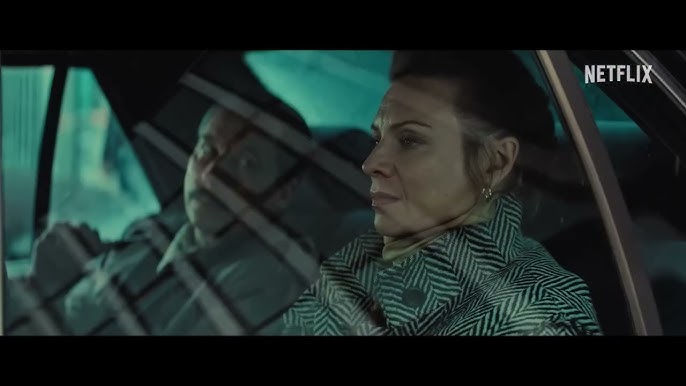Justice is a film that follows the personal journey of a former police officer who seeks redemption. The officer, played by Olaf Lubaszenko, is granted another chance to solve a complex crime.
However, Justice breaks from the usual crime-thriller template, concentrating on a deeper journey of self-discovery. Rather than high-speed chases or unexpected turns, the film focuses on topics such as regret and the weight of decisions.
If this plot interests you and you are wondering how the movie is, keep reading this review to know more.
A Crime Beyond Right and Wrong
The film Justice follows the personal journey of a former cop attempting to rehabilitate himself. The cop, played by Olaf Lubaszenko, was a communist regime supporter who lost his job because of his political beliefs.
Now, as he investigates a bank robbery, his investigative abilities shine through. However, he begins to wonder if returning to the police force is actually what he desires, or if he is pursuing a concept of redemption that no longer suits his current self.

The film Justice begins with a dramatic bank robbery that ends in three deaths. This event pushes the characters and the spectator to think about justice and human nature. Instead of using exciting twists, the film concentrates on the personal tales behind the murder.
It depicts criminals as a variety of individuals, calling into question the concept of absolute morality and reminding us that terrible circumstances shape criminals as well.
A Character-Driven Narrative in Justice
Lubaszenko delivers a riveting portrayal of a worn-out yet sharp-witted officer. His emotional state is palpable as he attempts to reconcile his previous transgressions with his quest for forgiveness. Supporting actors also contribute to the narrative’s authenticity, bringing dimension to a story that emphasizes character development over action.
The cinematography of Justice contributes to the film’s sombre atmosphere with muted tones and gloomy settings. The film’s slow pace may not be suitable for those seeking fast-paced entertainment, but it allows for introspection and emotional depth.

Justice stands out by avoiding common Hollywood norms. It emphasizes realism, depicting characters and their moral quandaries realistically. The story does not provide easy solutions but rather focuses on the emotional toll of seeking justice.
As the protagonist meets with suspects and victims, he learns not only the truth about the crime but also the nuances of human behaviour.
The Shadows of the Past
Justice subtly criticizes the societal impact of Poland’s communist history. The film shows how the past continues to influence the characters’ lives, adding depth to the narrative and reminding us that personal and political histories are often intertwined.
Justice is not your typical thriller, and those anticipating fast-paced action may be disappointed. The film focuses on character development and the protagonist’s emotional journey rather than narrative development. It encourages the audience to view justice as a complicated and often painful process rather than a simple end.

Justice humanizes all characters, especially criminals, allowing viewers to perceive them as flawed persons rather than villains. The film’s theme is straightforward: there are no flawless heroes or villains, only people suffering from the consequences of their actions.
The movie takes a sophisticated, realistic approach to the criminal drama genre. While it lacks the excitement of most thrillers, it compensates with outstanding performances, a thought-provoking story, and well-developed characters.
If you appreciate films that delve into the complexities of human nature and the fuzzy lines between right and wrong, Justice is worth seeing. However, if you’re hoping for a gripping crime mystery with surprising twists, this may not be the best option.
Conclusion
Justice is a thoughtful approach to crime drama, emphasizing character contemplation and the difficulties of redemption above adrenaline-fueled action. Though it may not please those seeking typical thrills, it appeals to viewers who value complex storytelling.
Lastly, Justice reminds us that the quest for atonement is a highly human path that is frequently more complex than the offences being investigated.